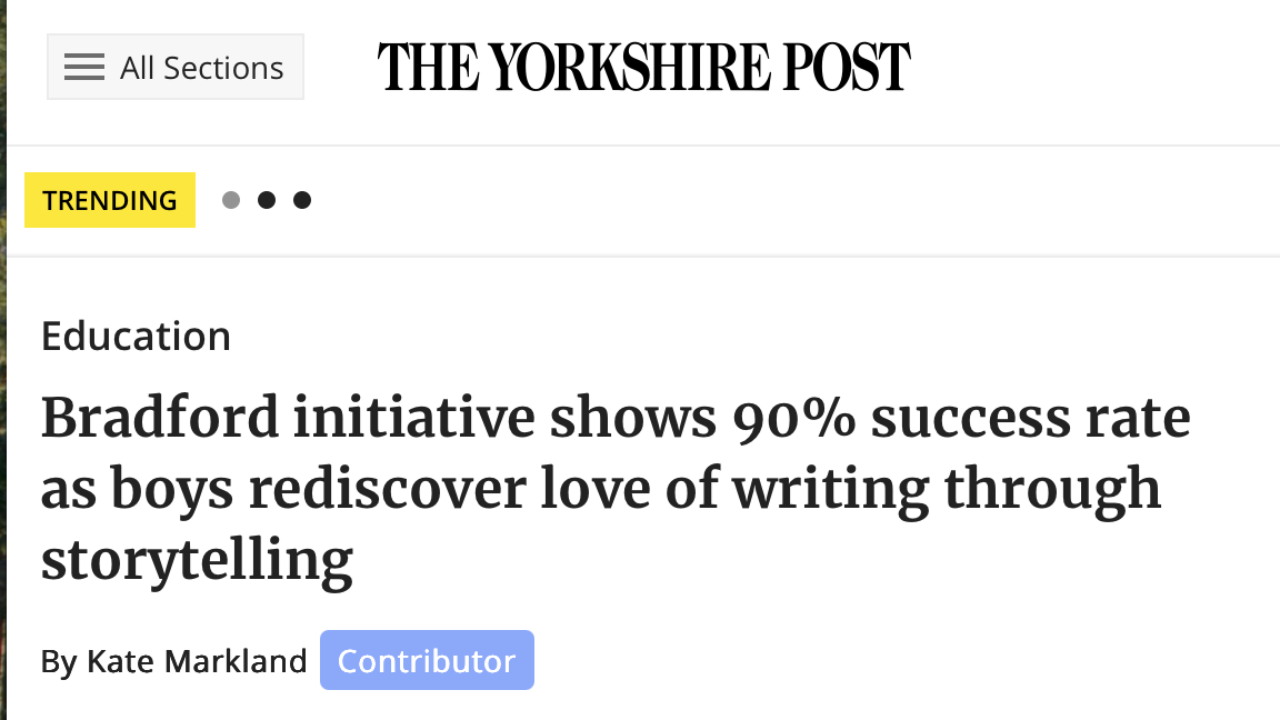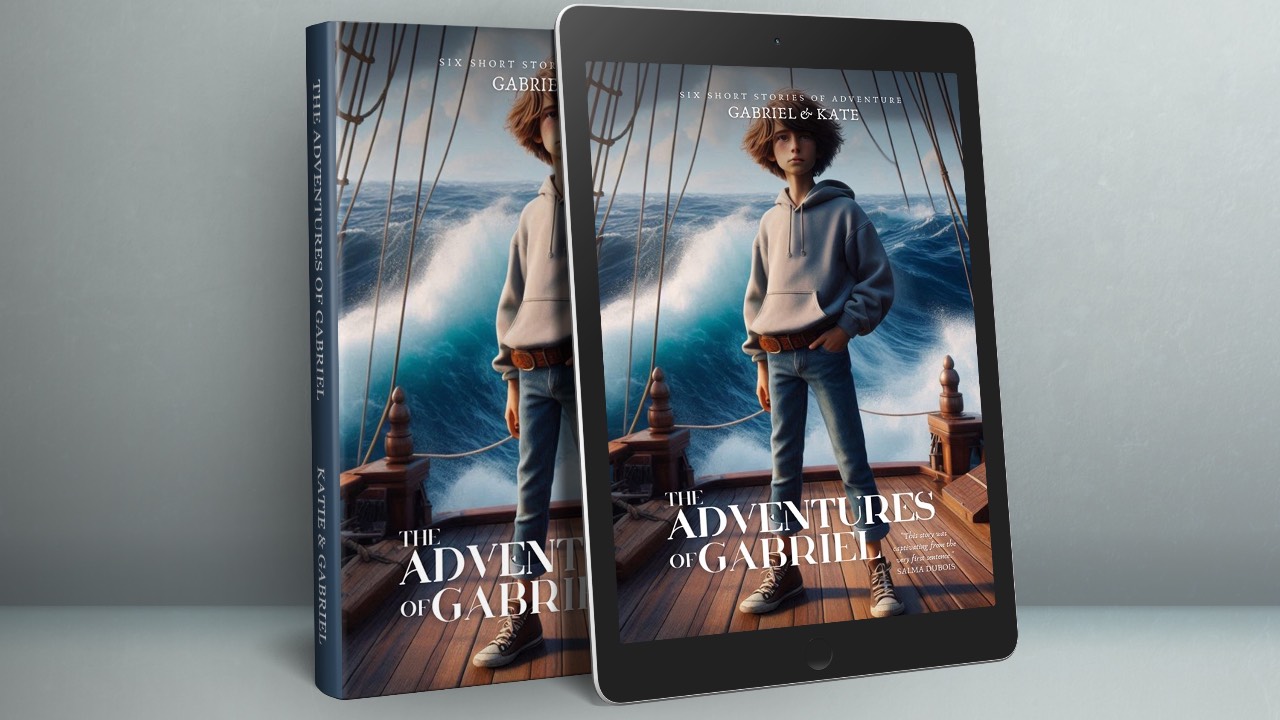Bradford Boys Rediscover the Joy of Writing
May 20, 2025
This week, The Yorkshire Post, highlighted how simple storytelling between my son and me has sparked something extraordinary in Bradford, and perhaps, something much bigger.
It all began with a question to my 10-year-old son Gabriel:
“Shall we make up a story where you’re the hero?”
What followed was The Adventures of Gabriel, a homemade project that has since evolved into The Adventures of Bradford, a storytelling movement helping boys (and girls!) fall in love with writing, often for the first time.
The Problem: A Crisis in Boys' Literacy
Research shows that by age 11, boys are twice as likely as girls to fall behind in writing. Since the pandemic, the gap has only widened:
-
Writing is the most affected subject across UK schools
-
Verbal confidence (oracy) has sharply declined
-
Curriculum pressures often leave little space for creativity
We’ve unintentionally created environments where children — especially boys — are assessed more than they’re heard. And they know it.
“They can tell when they're being asked to perform instead of create,” I shared in the article.
The Spark
When Gabriel and I first started crafting his stories, he orated and I scribbled. No pressure. No red pens. Just wild, joyful imagination. His sidekick was a platypus. His mission? Defeat a sea monster. The book, co-authored and illustrated by his grandfather, became something real, and powerful.
Soon, we brought the method into schools using the StoryQuest™ framework — and the results were immediate.
What Happened in Bradford Classrooms
Since launching workshops across the city:
-
90% of pupils completed a full story
-
Reluctant writers voluntarily stayed behind to keep working
-
Teachers reported “the most enthusiastic writing sessions we’ve ever seen”
-
Pupils began reading aloud, encouraging each other, and collaborating on details
Boys, in particular, became leaders in their own learning — not because they were told to, but because their stories suddenly mattered.
One Year 6 teacher told us:
“Even the kids who don’t like writing — they didn’t want to leave.”
And a child shared:
“I believed in myself so I could create things I didn’t even know I could do.”
Why It Works
The workshops work because they strip away fear and restore agency. Children begin by speaking — with a friend by their side, listening intently, capturing their imagination in real-time.
They’re not writing for a grade. They’re writing for each other. And that’s the difference.
Here’s what makes it especially effective for boys:
-
Verbal storytelling before writing reduces blank-page anxiety
-
Characters and quests give emotional expression a “safe container”
-
Peer-to-peer collaboration replaces isolation with excitement
-
The framework builds success quickly, reinforcing confidence
Recognition and Next Steps
From school halls to national stages, the ripple effect is growing. The Adventures of Gabriel and The Adventures of Bradford have now been selected to present at:
-
The British Psychological Society Conference
-
Canadian Teacher Magazine (Spring 2025)
-
The European Conference on Education (ECE2025)
What’s Next: A Call to Schools, Parents, and Policymakers
This project is about much more than literacy. It’s about voice, identity, and emotional development.
Storytelling helps children:
-
Process feelings
-
Problem-solve creatively
-
Explore identity and moral reasoning
-
Connect language with meaning
“When we give boys permission to tell their own stories,” I wrote, “we’re not just improving their writing; we’re helping them develop essential life skills.”
And what’s beautiful is — the stories are already inside them. We just need to ask:
“Tell me more.”
📚 Want to Learn More?
If you’re a teacher, parent, or school leader and want to bring StoryQuest™ to your community:
Visit: theadventuresofgabriel.com/bradford
Together, let’s put the joy, and the voice, back into learning.



















